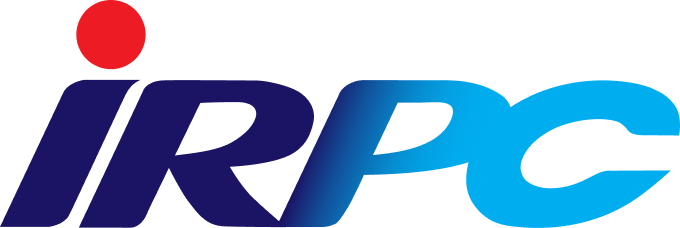All IRPC employees are entitled to paid parental leave, which is available to both female employees leaving for childbirth and male employees leaving for taking care of their family. Employees can also request additional personal leave for family care. IRPC also provides breast-feeding rooms at each operational site and supports employees who are pregnant or have recently had children. In addition, we provide childcare services at Bangkok office by partnering with local babysitters, thereby promoting income opportunities for locals surrounding the company. Moreover, IRPC offers comprehensive health insurance coverage for employees and their families, including spouses, children, parents, along with annual vaccinations and dental care expenses. Furthermore, we offer scholarships for employees’ children in order to promote education and well-being.



IRPC’s human resources strategy focuses on three core areas: People Readiness to ensure employees have the skills needed for future business goals, Reforming the Organization to enhance operational efficiency through digital tools, and nurturing Core Values to support the company’s evolving vision. These approaches aim to develop a skilled, adaptable workforce that supports IRPC’s long-term business objectives.
Labor Practices
IRPC places importance on respecting employees’ human rights and fosters awareness through training, workshops and media for dissemination within the organization. The company continues to emphasize providing fair welfare and benefits to employees, covering aspects such as well-being and healthcare and promoting diversity, equity, and inclusion programs. Moreover, IRPC establishes guidelines to reduce bias towards supervisors and ensure fairness in supervisor-subordinate relationships through 180- degree assessments.
Employee Well-Being
To foster a workplace where employees are deeply engaged in their work, IRPC offers industry-leading incentives and welfare benefits. The company is dedicated to ensuring that employee compensation supports a dignified standard of living by providing wages that not only comply with applicable minimum wage regulations but also cover the essential needs of employees and their families while allowing for savings. To maintain this commitment, IRPC regularly reviews compensation and actively seeks employee feedback through established communication channels, such as labor unions and employee engagement surveys. Furthermore, IRPC provides extra remuneration for tasks beyond standard obligations, including overtime pay, holiday pay, and ensures compliance with labor regulations to maintain fair work practices, while monitoring overtime that exceeds limits to protect employee well-being.
In addition to the standard welfare package and nationally mandated programs, which include four major public insurances and a congratulations and condolences program, IRPC offers a specialized set of benefits to our full-time employees, tailored to support them throughout their life cycle. These programs are designed to support employees in fully engaging in their work while meeting their needs in terms of life, health, and leisure. In 2020, IRPC introduced a selective health insurance program, allowing employees to customize their welfare benefits according to their lifestyle and preferences. This initiative aims to promote a balance between work and family, while enhancing welfare benefits in areas such as culture, sports, leisure, family life, and self-development.
Health and Well Being Benefits
2.1 Workplace stress management : Our workplace stress management initiative includes well-being education seminars that cover a range of topics such as human rights, health and well-being, creating a happy workplace, work-life balance, and more. These seminars are designed to help employees mitigate health risks and promote overall well-being. Additionally, we invite our customers and suppliers to participate in these sessions, and recordings are made available for future access.
2.2 Sport & health initiatives : Include onsite fitness centers at all locations, along with annual events such as marathons, running challenges, and refinery games to encourage physical activity among employees. We also prioritize healthy eating by offering a variety of nutritious food options, including vegetables in the canteen and fruits during meetings. Additionally, we provide nutritional advice, host seminars, and organize an annual weight loss competition to further support employees’ health and well-being.
Workplace Flexibility
3.1 Flexible working hours : We have a policy that supports flexible working hours, if it can be implemented in a way that meets business requirements while also considering employees’ needs and changing circumstances. Moreover, we have strengthened worksite-centric support with the launch of IRPC i-connect portal for the purpose of strengthen intra-company communication.
3.2 Working-from-home arrangements : IRPC has implemented the Work from Home (WFH) practices as a normal working style, to ensure flexibility and adaptability and meet the demands of a new generation of employees. We also developed the infrastructure and network system so that employees who work from home will be able to deliver similar performance comparable to working in the office.
Paid Parental Leave
- Female employees have the rights to leave for childbirth, not more than 98 days and to receive wages during the leave but not to exceed 70 days, which is beyond Thai’s Labour Laws. If a pregnant employee holds a first-class medical certificate that shows the employee cannot work on the usual duty, the employee has the right to ask an employer to change a job on a temporary basis before or after birth.
- Male employees have the rights to parental leave for take care of their family for up to three working days per child, which is beyond Thai’s Labor Laws and to receive wages on the day of leave.
- Employees can apply for additional personal leave or annual leave to care for family members (i.e., children, spouse, parents). The company will consider suitability on a case-by-case basis.
Working Hours Practices
- IRPC oversees and monitors employees’ working hours in compliance with regulations, rules, and applicable laws, setting the working hours not to exceed 8 hours per day and ensuring that the total working hours do not exceed 48 hours per week, with employee health and occupational safety being the top priorities.
- Moreover, IRPC does not encourage overtime work, work on holidays, or overtime on holidays, except in necessary cases. In such cases, total overtime hours must not exceed 36 hours per week. The Company ensures that employees are fairly compensated for overtime work based on the actual number of hours worked, which are accurately recorded in the system.
Employee Equality
IRPC promotes diversity, equity, and inclusion within our workforce to enhance operations and achieve the goals outlined in our strategies. Our Diversity Policy ensures non-discrimination based on gender, age, race, culture, religion, or disability, and fosters an inclusive environment at all levels. We have implemented measures to protect employees from sexual harassment, provide comprehensive leave and benefits for legally recognized partners, and offer training on sexual diversity and mental health awareness. Internal documents have also been updated to allow employees to specify their gender identity. Additionally,
IRPC is committed to providing employment opportunities for people with disabilities and promoting their inclusion in the workplace. We also monitor the career advancement of female employees by tracking the proportion of female executives annually.

Ratio of basic salary and remuneration of women to men
2021
2022
2023
2024
Executive level
0.90
0.79
1.02
1.07
Management level
0.85
0.88
0.97
0.91
Non-management level
1.06
1.02
1.06
1.01
Freedom of Association
IRPC supports employees’ rights to organize labor unions, which is clearly stated in the employee relations policy. This commitment fosters a channel for union members and senior management to discuss matters of mutual interest, including the Company’s business direction, workforce restructuring in response to economic situations, human resource development, employees’ career path and welfare benefits. The senior management have always taken an interest in listening to employees’ views and feedback on these matters. Both sides meet on a quarterly basis. In addition, employees may also make known their opinions through various channels, including the employee satisfaction survey, etc.

Human Capital Management
IRPC implements Strategic Workforce Planning (SWP), a systematic analytical process for workforce planning that aligns workforce planning with business strategies to ensure that the company has at our disposal appropriately skilled personnel well attuned to existing and future business plans. To develop an organization’s talent pool, IRPC employs the following approaches:
-
- Create a management pool and develop their readiness to succeed in retiring executives in strategic positions, such as line positions and executives in strategic roles whom IRPC assigns to secondment, in accordance with IRPC Group’s way of conduct.
- Create an expert pool or specialist pool crucial for fulfilling the company’s vision.
- Create and develop Young Leaders pool and development programs to support growth and new businesses.
IRPC appoints the Human Resource & Organization Effectiveness Management Committee (HOMC) and the Human Resource & Organization Effectiveness Development Committee (HODC) to review manpower, succession planning, and the recruitment process at all employee levels. Through annual monitoring, we have developed competency standards while considering other essential factors for sustainable succession. Furthermore, IRPC ensures sustainable management of the succession plan of soon-to-be retiring employees by preparing high-performing candidates for managerial roles through the Breakthrough project, where they will develop their leadership skills to succeed in project management.
IRPC recognizes the importance of recruiting potential candidates to foster future business growth. As reliance on long-term employees with high expertise presents emerging risks, it is crucial to recruit the next generation of talented individuals with the capabilities essential for IRPC’s future success. IRPC manages the recruitment of potential candidates by combining internal talent selection with external expert sourcing, while nurturing talent clusters to prepare replacements for vacant positions. In addition, IRPC supports local employment in areas where we operate to ensure that benefits are distributed to the local communities.
IRPC’s recruitment goals align with todays’ priority to “survive” and tomorrow’s priority to “perform in the new game”, underscoring our commitment to staying at the forefront of a competitive market by acquiring new talents and enhancing existing employees’ capabilities. This strategy supports IRPC’s workforce adaptation across the following four quadrants:
-
- Reposition: Reshape the portfolio to drive efficiently and performance
- Disrupt: Create new market norms or business delivery model
- Preserve: Cost optimization and financial value generation
- Survive: Structural improvement and cost reduction
Human Resource Development
IRPC places great importance on the development of skills and capabilities among all employees, with a particular focus on cultivating new skills to meet future demands, especially in areas such as data analytics and digital innovation. IRPC human resource management team is assigned to develop a benchmarking study on capacities of employees in the global companies, which allows IRPC to effectively review employees’ leadership and competencies for further enhancement, as well as prepared to train employees of different sectors to align with organizational needs through various training programs.
To maintain a competitive edge in its industry, IRPC has established the IRPC Development Framework, aligning with corporate goals through a Competency-Based Learning approach. This framework is designed to support employees at all levels, from new hires to senior executives, by enhancing their knowledge and skills based on their roles and responsibilities. The program focuses on three key areas: Work Competency, Leadership Competency, and Future Skill Development (Step Up and Beyond), ensuring employees are well-equipped to drive the company’s success.
- Work competency development is structured based on performance groupings linked to the overall value chain, ensuring employees acquire knowledge and skills relevant to their roles, duties, and responsibilities. Employees are encouraged to pursue continuous self-improvement, enhancing their capabilities to meet professional standards.
- Leadership Competency focuses on structured development from onboarding to executive leadership, enhancing business acumen and management skills. The LEAD programs (1–5) progressively build leadership capabilities, from self-leadership to corporate strategy. High-potential executives undergo Succession Planning, while senior leaders receive advanced training in partnership with PTT Group to drive organizational growth.
- Future Skill Development focuses on reskilling and upskilling employees through the ACCELERATE program, enhancing social-emotional agility (self-awareness, adaptability), cognitive skills (critical thinking, problem-solving), and digital capabilities (data analytics, automation). This initiative aims to build a top-quartile workforce with continuous monitoring and goal setting to ensure sustained development and high performance.

To further align IRPC’s workforce with business goals, the company has introduced the Individual Development Plan (IDP) as a key strategy. The IDP focuses on preparing executives and high-potential employees by identifying role-specific development opportunities aimed at future leadership positions. In parallel, Succession Planning targets senior executives who have consistently demonstrated value to the company, ensuring a steady pipeline of capable leaders for IRPC’s continued growth.
Human Capital Return on Investment
Human Capital Return on Investment is a valuable tool for measuring our profitability in relation to total employee costs. By calculating this metric, which involves excluding non-employee costs from overall operating expenses and determining the resulting operating profitability, we can gain insights into the effectiveness of our investment in human capital, informing strategic decisions related to human resource management for future improvements.
Talent Attraction and Retention
IRPC aims to cultivate core organization’s values that facilitate essential behaviors for realizing new visions and strategic goals, encapsulated in the IRPC G3 (Good Great Growth to success). This framework consists of the following key organizational cultures and behaviors.

Performance Management and Rewarding
IRPC’s performance management process begins with setting corporate KPIs, cascaded down to the VP level and below, with clear targets for each level and an action plan to manage performance. Performance is categorized as excellent, good, average, or poor, with regular assessments and adjustments made through strategic evaluation. Performance targets were adjusted to 50% KPI, 25% competency, and 25% behavior, allowing the HR team to identify top performers. Tools such as Leading and Lagging Indicators, Value Tree, and KPI Cascading Tool are used for visualizing and analyzing KPIs.
Additionally, IRPC’s performance management includes annual appraisals, continuous feedback, and leadership assessments. Management employees undergo a 360-degree feedback leadership assessment, while all employees complete the IRPC DNA Assessment. Regular 1:1 agile conversation monitors employee performance, career development, and work-life balance, and evaluations are recorded and approved through the HR system to ensure alignment with performance targets. The results of the performance review are also used to identify and define development programs that support employees’ career growth and align with the company’s business direction, ensuring effective employee development.
Furthermore, IRPC is committed to developing long-term incentive measures for performance-based rewards, with senior executives’ variable bonuses directly tied to their performance, reflecting the company’s fair compensation policy linked to both short- and long-term results.
New Employee Hired Rate (%)
2021
2022
2023
2024
Male
6.39
2.91
0.85
0.14
Female
9.12
4.69
2.84
2.16
Total
6.78
3.17
1.14
0.43
Employee Turnover Rate (%)
2021
2022
2023
2024
Male
6.68
2.02
0.59
5.71
Female
7.29
3.44
0.47
7.65
Total
6.78
2.23
0.57
6.01
Employee Engagement
IRPC has identified 5 principles to drive employee engagement which can be categorized as Best Employers Differentiators and Foundation to capture the overall work experience. The Best Employer Differentiators engagement drivers include (1) Agility, (2) Engaging Leadership, and (3) Talent Focus. The foundation engagement drivers include (4) The Basics and 5) The Work. These principles aim to yield results in both engagement and business aspects. IRPC anticipates the following outcomes from fostering employee engagement:
Engagement Outcomes
Business Outcomes
- “Say” – employees speak positively about the organization to their colleagues, prospective employees, and client, reflecting job satisfaction, and organizational loyalty.
- “Stay” – employees are engaged in the organization to drive growth, reflecting alignment with their career path and a clear understanding of purpose of their duty.
- “Strive” – employees’ willingness to dedicate themselves and work beyond IRPC’s expectations for successful business as well as to balance their work-life and happiness.
- “Talent” which captures retention, absenteeism, and employee well-being.
- “Operational” which consists of productivity and safety.
- “Customer” which captures satisfaction and retention.
- “Financial” which includes the revenue/sales growth, income, profit, and overall returns for shareholder.
Employee Engagement Survey Result


